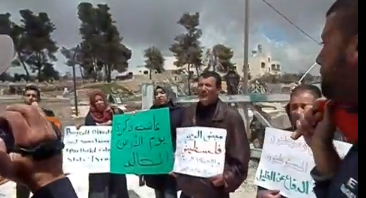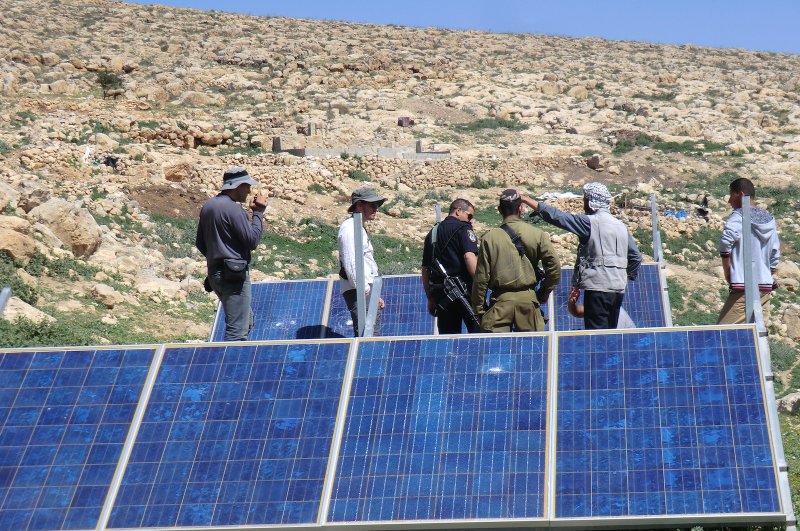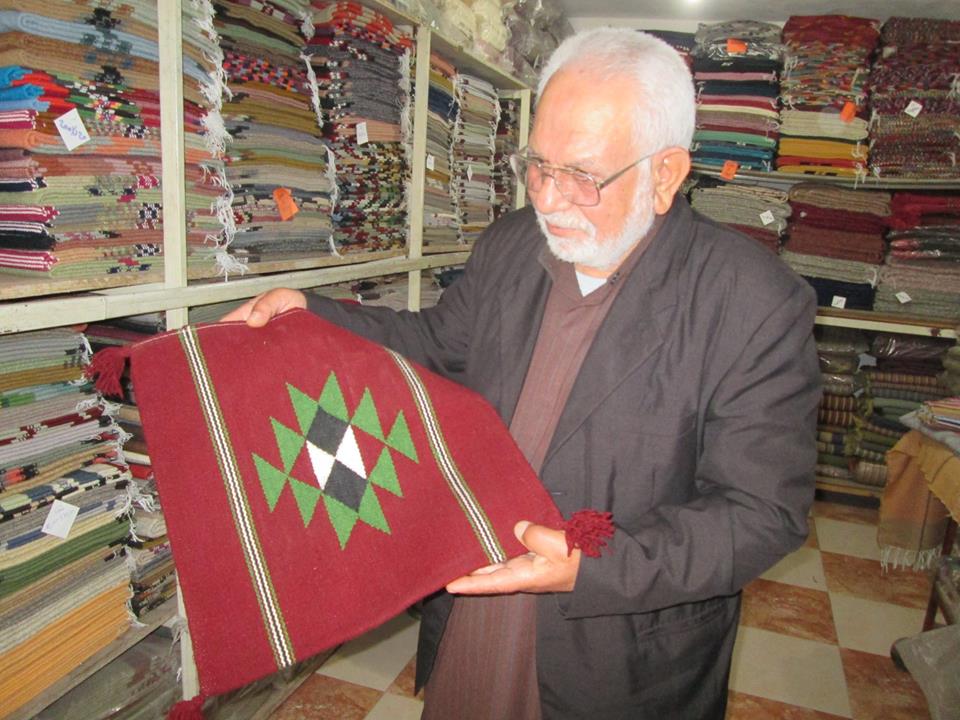-
Demonstration against settlement expansion in Hebron
30th March 2014 | International Solidarity Movement, Khalil Team | Hebron, Occupied Palestine At noon today approximately 50 protesters held a demonstration outside the Rajabi Building, Hebron, in protest of the recent court decision to let settlers take over the building. Settlers taking over the house would mean a huge expansion of the illegal settlement […]
-
Palestinian basic resources damaged by Israeli settlers
29th March 2014 | Operation Dove | At Tuwani, Occupied Palestine In the evening of March 26, Israeli settlers damaged some solar panels, only electricity power sources for the Palestinian village Bir Al Idd. The same day, during the early afternoon, Israeli settlers grazed their flock on Palestinian-owned wheat fields, damaging the harvest. At 2.18 […]
-
“The reason is to wipe out Palestinian culture and history”: A Gaza carpet factory under siege
28th March 2014 | International Solidarity Movement, Charlie Andreasson | Gaza, Occupied Palestine Before we settle down for a glass of Turkish coffee among shelves filled with neatly stacked, woven carpets Mahmoud El Sawaf, 68 years old, shows me around the small factory. The tour goes pretty quickly. There ‘s only a mechanized loom and a manual one. The […]
Action Alert An Nabi Saleh Apartheid Wall Arrests BDS Bethlehem Bil'in Cast Lead Demonstration Denial of Entry Ethnic Cleansing Farmers Gaza Global Actions Hebron House Demolition International law Israeli Army Jerusalem Live Ammunition Nablus Ni'lin Prisoner Ramallah Rubber-coated steel bullets Settlement Settlers Settler violence Tear-Gas Canister Video



